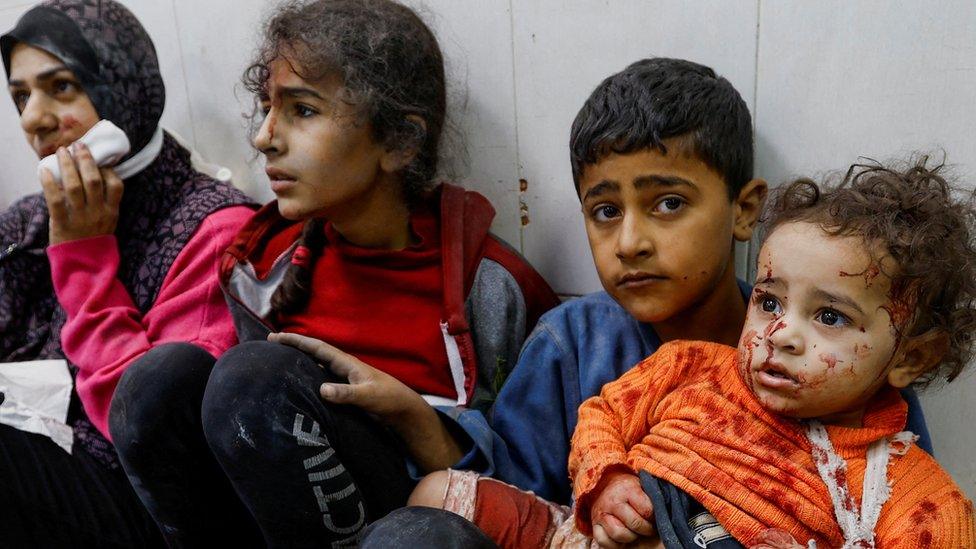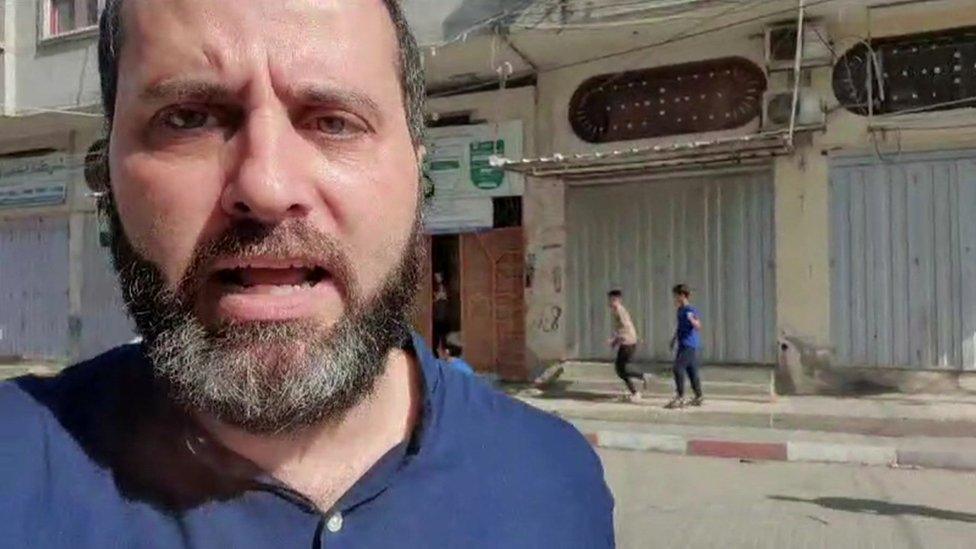Manchester scientist escapes Gaza after threat of attack
- Published

Mohammed Ghalayini travelled to Gaza before war began in October
A Manchester scientist who stayed in Gaza to help his relatives has now fled after he said the Israeli Army told them to evacuate.
As a British-Palestinian dual national, Mohammed Ghalayini could have escaped early after war broke out in October.
"This apartment block - it's been my family's home since the 1930s and my sister was born there. To leave it forcibly under threat of death is a horrible, horrible feeling," he said.
He reached Egypt via Rafah on Sunday.
As he travelled to Cairo, he said: "I'm so relieved but also very sad to be leaving Gaza, to be leaving my friends, my family members behind - knowing they're at risk of death, injury, loss of their properties, loss of their livelihoods, loss of their land.
"Without a ceasefire, they're at risk of all that - we need a ceasefire now."
On Friday, the US blocked a resolution at the UN Security Council calling for an immediate humanitarian ceasefire. The UK abstained while the remaining 13 on the 15-member group voted in favour.
Mr Ghalayini said: "I'm so grateful to the British consular staff who have done a great job in facilitating in getting me and many others out."
The 44-year-old was visiting relatives when Hamas attacked Israel on 7 October, killing 1,200 people and taking about 240 hostages.
The air pollution scientist remained with his family as the death toll in Gaza climbed to more than 18,000.

Mr Ghalayini said he enjoyed getting to know his relative's and friend's children
He previously told BBC North West Tonight about struggles to get enough food and sleep, saying "We're not eating enough and we're kind of running around the streets trying to get stuff and wondering where the next bomb will fall."
"Leaving could mean death and injury and staying could mean death and injury, so it's basically being between a rock and a hard place."
He described the seven-day truce in November as comparatively "idyllic" when he cycled to a nearby beach, picked olives, visited friends and collected a large water container for his family.
Speaking on Sunday before he left Gaza, he said: "It's so hard to leave people behind like this.
"The people that are with me right now are my cousin and childhood friend - we went to school together and I've been getting to know their kids and to leave them behind to this unknown fate is really difficult."

Why not follow BBC North West on Facebook, external, X, external and Instagram, external? You can also send story ideas to northwest.newsonline@bbc.co.uk
Related topics
- Published10 December 2023

- Published10 December 2023

- Published1 December 2023

- Published18 October 2023
